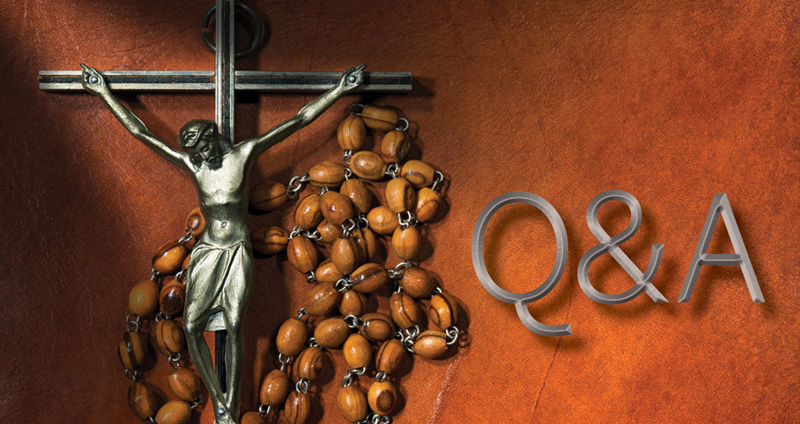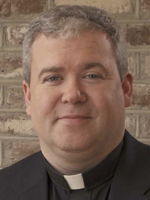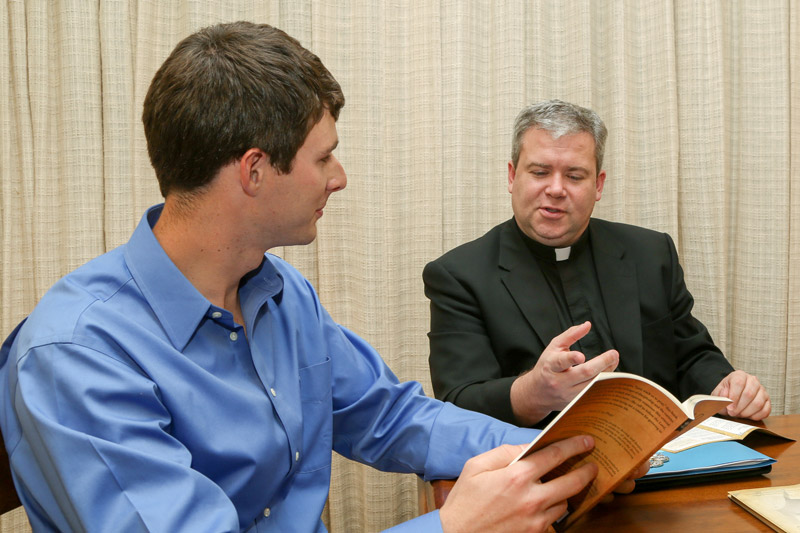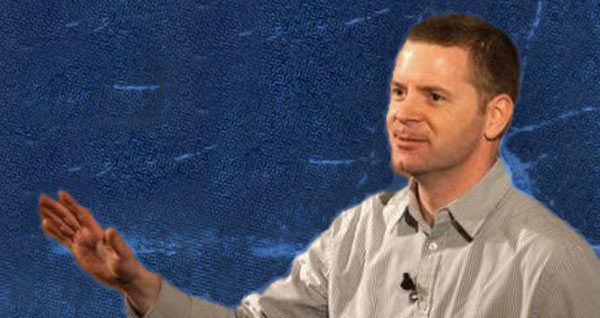
Q: I’ve been trying to avoid any monetarily motivated work on Sunday. Is this a good course of action? What about reading non-religious literature? (Summerville, SC)
A: The observance of Sunday is a serious responsibility of the Christian believer. The day of rest is given to us by God as a time for worship, blessing, rejuvenation, and family. While restrictions of work and spending are loosely applied by moral norms in the New Covenant, Christians should be attentive to keeping the day holy and allowing themselves (and others) to rest.
With the above said, it is acceptable to do monetarily motivated work on Sunday, especially when it’s necessary for our financial support or for the care of those under our charge. We should be cautious, however, about doing work that is not necessary or that could wait until another day.
In terms of your other question about Sunday, we can read whatever brings us comfort or relaxation. Certainly the Bible or spiritual writings are preferred, but a good novel or some other genre that gives us rest can be read and appreciated on the Lord’s Day.
Q: My priest recently commented on the nuclear bomb scare. He criticized the use of atomic bombs in Hiroshima and Nagasaki. Everyone is entitled to his opinion but shouldn’t he realize that these bombings ended the Second World War? Does the Church have any teaching on this? (Rock Hill, SC)
A: Certainly, we must all have a historical sensitivity to the World War II era. Many of us cannot imagine the horror or loss of life of that war. And while this can be a hindrance, it can also be a help. The hindrance is easy enough: we cannot fully understand the level of death, suffering, fear, and anxiety. The help in being removed from the experience is the possibility of objectivity.
By saying this, I mean — that by being removed from the understandable emotion and trauma of the war era — successive generations might be able to apply moral standards that were blurred in the heat of that time.
The Church can look back and indicate that, in spite of whatever reasons were given, all of them fall short when placed against the nuclear devastation of two entire cities. Both cities of which contained extensive civilian populations. In spite of attempts at reasonable explanations at the time, the use of the atomic bombs — even to conclude a horrible war — were a desecration of a moral understanding that is born from our shared nature as human beings and a violation of the “rules of war” agreed upon by all nations. No nation can willfully attack non-combatants and annihilate an entire population.
I understand that it may take us a few more generations before we can swallow that pill as a people. I know that this moral observation can still be very hard for many Americans to accept. Perhaps some might say, “You still don’t understand.” So we turn to a most credible teacher, one who was alive and suffered in World War II, namely, Pope St. John Paul II. As a young man, he suffered under the Axis Powers. Even with his experience of the devastation of war, however, as the pope, he denounced the use of atomic bombs. During a visit to the Peace Memorial Hall in Hiroshima, he taught: “To remember the past is to commit oneself to the future. To remember Hiroshima is to abhor nuclear war. To remember Hiroshima is to commit oneself to peace. To remember what the people of this city suffered is to renew our faith in man, in his capacity to do what is good, in his freedom to choose what is right, in his determination to turn disaster into a new beginning.”
Father Jeffrey Kirby is administrator of Our Lady of Grace Church in Lancaster. Because he is moving on to other projects after the summer months, Father Kirby is no longer taking questions for this column.




